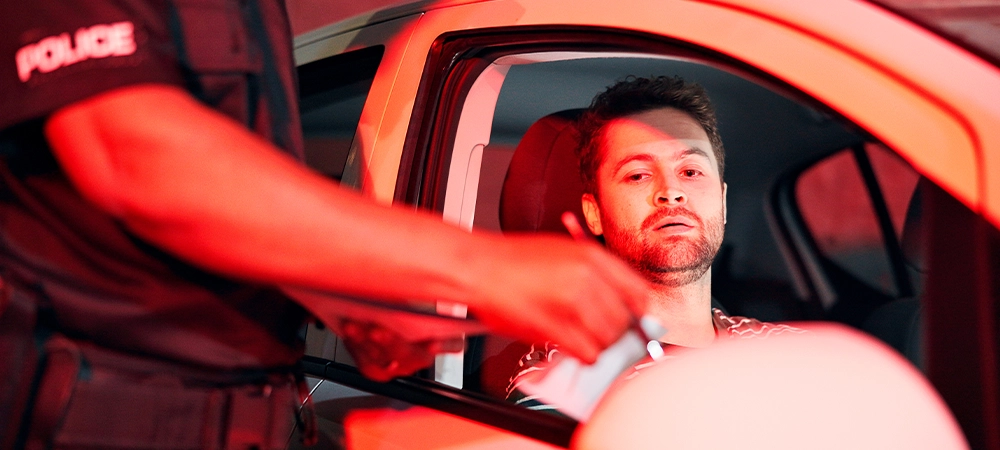The Canadian legal system has long taken a strict approach when it comes to impaired driving. When that impaired driving includes causing bodily harm or death, it can lead to life-changing penalties. This is why it’s vital to know what your charges mean and the best defences for them.
The law on these matters can be complex, and it can be hard to work out what will happen next. Here you’ll see how these charges are laid, what the Crown has to prove in court, and potential sentencing outcomes.
How Impaired Driving Causing Bodily Harm or Death Works in Canada
You will be charged with an impaired driving offence if the police have reasonable grounds to believe your operation of a motor vehicle was impaired by drugs, alcohol, or both. If the impairment contributes to the injury or death of another person, two serious charges can be laid:
- Impaired operation causing bodily harm
- Impaired operation causing death
If impairment is not proven, you can still be charged with dangerous operation causing bodily harm or death. All of these charges carry much higher penalties than impaired driving, including the possibility of lengthy jail time.

What the Crown Must Prove
As most people know, Canada follows the system of innocent until proven guilty. Due to this, the onus is on the Crown to prove the crime beyond a reasonable doubt. That means they need to establish several key elements before a guilty verdict is possible:
The Accused Was Operating a Motor Vehicle – As well as driving, this can include having care or control of a vehicle, or even being in a position to operate it. This can apply even if the car was stationary.
The Accused Was Impaired – Impairment can be proven in several ways, such as breath or blood samples, drug-recognition evaluations, officer observations, and witness testimony. Impairment doesn’t need to be severe, merely affect your ability to operate a vehicle.
Causation – This can be complex as it needs to be proved that the accused’s driving caused the bodily harm or death. For example, if the impaired driver had to take evasive action to avoid a collision with another vehicle, the court must determine whether their impairment played a meaningful role in the death or bodily harm.
The Harm Was Bodily Harm or Death – Death obviously doesn’t need to be proven, but bodily harm can be a grey area. It means any injury that is more than trivial or transient, effectively interfering with their health or comfort.
Related Article: https://www.agpllp.ca/what-is-a-dui-lawyer-and-why-do-i-need-one/
Penalties for Impaired Driving Causing Bodily Harm or Death
The consequences of the conviction in both cases will be extremely serious. Along with prison sentences can come fines, driving prohibitions, and a criminal record. There are also the professional and personal consequences of these crimes.
When it comes to the prison sentence, these are hugely dependent on the circumstances. The maximum sentence for impaired driving causing bodily harm is 14 years. For causing death, it is life imprisonment. In reality, the actual sentences are often much lower.
The average bodily harm case is likely to see 1-3 years in prison. For death, it averages around the 4-6 year mark. It’s important for us to stress that these are ballpark figures, and you shouldn’t see them as an accurate representation of your case.
If there are several aggravating factors, these sentences can be significantly higher. Common aggravating factors include:
- Extremely high blood-alcohol concentration
- Excessive speeding
- Driving with minors in the vehicle
- Fleeing the scene
- A history of impaired-driving offences
- Combining alcohol with illegal drugs
- Multiple casualties
Conversely, the opposite can be true. If you were only just impaired, driving sensibly, and caused minor injuries to one person, the sentence would be on the lower side. The key takeaway is that these factors have a huge impact on the sentence.

Possible Defences to Impaired Driving Causing Bodily Harm or Death
We mentioned what the crown must prove above, and this can all be challenged. These cases rely heavily on the facts, and an experienced DUI lawyer will scrutinize them all.
Challenging the Impairment Evidence – There are many procedures and rights that need to be followed when taking breath and blood samples. Undermining the officer’s actions or the validity of the readings can seriously weaken a case.
Causation – The defence can argue that the harm or death was not caused by impairment. Other drivers, road conditions, mechanical failures, and weather can all impact our ability to control a vehicle. These may have been a more significant factor than the impairment.
Identity and Operation Issues – It’s not always obvious who was driving. The defence may challenge the Crown’s claim of who was driving at the time of the collision.
Medical Conditions – Some medical issues can mimic impairment. Expert testimony is usually required here, but can be a defence if you have a medical condition.
Related Article: https://www.agpllp.ca/understanding-the-costs-of-hiring-a-dui-lawyer/
FAQs
What if another driver caused the accident? Can I still be convicted?
Possibly. Even if another driver was involved, it could be argued that your response would have been improved without impairment. In these cases, the defence will most likely argue the impairment wasn’t a significant factor.
What penalties can I expect if convicted?
It’s extremely difficult to assess without looking at individual circumstances. Jail time is likely, but the length of the sentence can vary greatly. Driving prohibitions and fines are also likely.
Are there any defences available?
There are many defences available for these charges. The right one for your case will depend on the specific circumstances.
Should I contact a lawyer immediately after being charged?
You should contact an experienced lawyer immediately after your arrest. It’s important to exercise your right to remain silent before you do. They will then guide you through the next steps.
Can I still be charged if I refused a breath or blood test at the scene?
You will be charged and treated as if you were impaired. Not only does this come with the same criminal consequences, but it also prevents the defence from otherwise challenging the results. Refusing to be tested is a crime and is never a good idea.
Final Thoughts
Impaired driving causing bodily harm or death is one of the most severe criminal offences in Canada. Being charged with such a crime can be daunting, but it’s important to take the right steps to ensure you get the best possible defence.
The Crown will need to prove its case, and there are several strategies open to the defence team. If you’re in need of legal representation, contact AGP LLP today. We’ll be happy to offer you a free consultation and see how we can help with your case.





